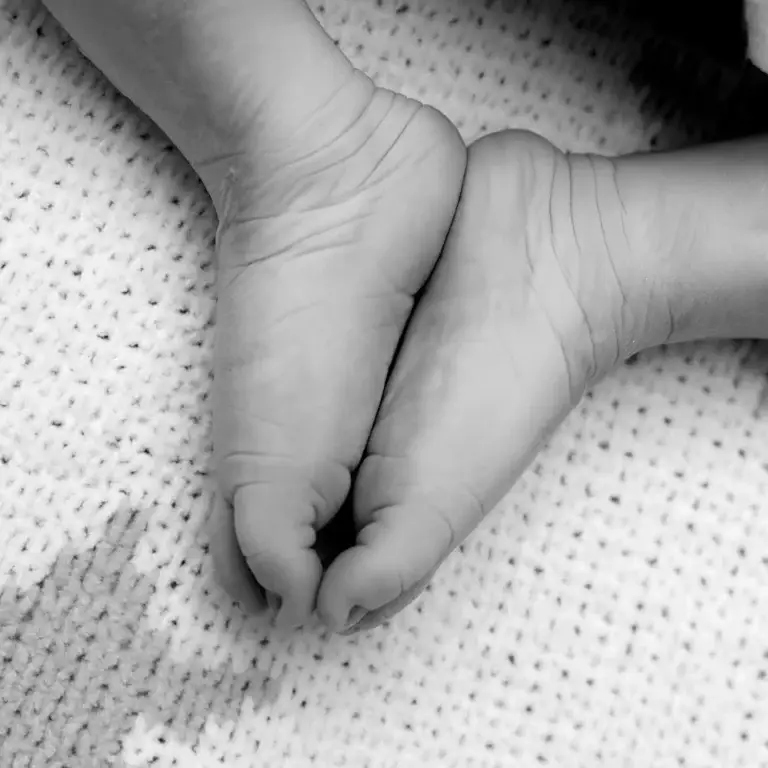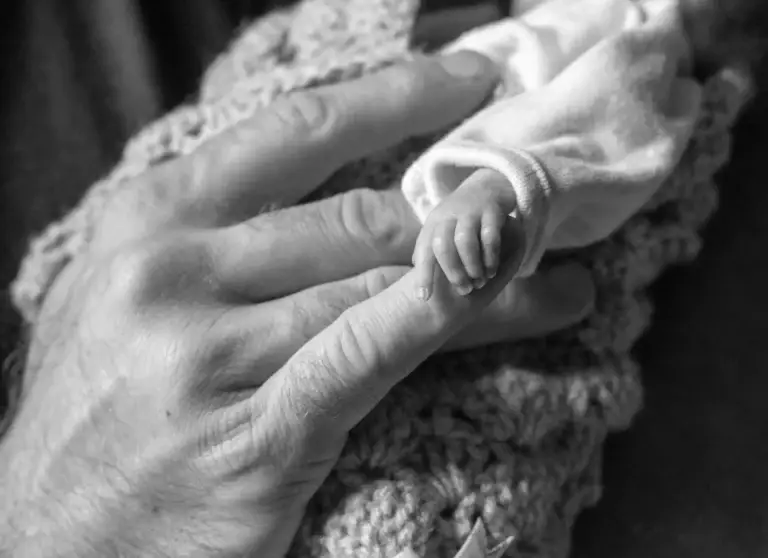For Ellie, the news of her pregnancy was unexpected, a surprise she hadn’t planned for but grew to embrace. As a single parent-to-be, she didn’t have much time or space in her life to prepare, but she carried the excitement of welcoming her daughter, Mia, with her every day.
“I thought I had time to get everything ready,” Ellie said, her voice trembling. “I kept telling myself that once I reached the later stages of pregnancy, I’d buy the cot, pick out baby clothes, and decorate the room. But then everything happened so quickly. It felt like time was stolen from me.”
At just 22 weeks, Ellie started to feel pain, sharp and unusual. At first, she brushed it off as normal pregnancy discomfort, something to endure. But as the days passed, the pain worsened, and Ellie couldn’t shake the nagging feeling that something was wrong. “I remember lying in bed, clutching my belly, whispering to her, ‘Please be okay.’ I didn’t want to admit how scared I was.”
A rushed trip to the hospital confirmed her worst fears. Ellie was experiencing complications, and the doctors explained that she was at risk of going into labour far too early. “I just stared at them,” Ellie said. “Their words felt like static in my ears. How could this be happening? How could everything change so fast?”
Ellie was admitted to the hospital and placed on bed rest, with every effort made to delay the labour. She spent the next few days lying in a sterile room, alone with her thoughts and fears. “I kept looking at my belly, talking to Mia, begging her to stay inside just a little longer,” Ellie said. “I kept thinking, ‘She just needs more time. If I can give her that, maybe everything will be okay.’”
But only a few days later, Ellie’s waters broke, and she was rushed into labour. At 24 weeks, Mia was born, far too early to come into the world safely. “She was so tiny,” Ellie said, her voice breaking. “I didn’t even know a baby could be that small. She didn’t cry when she came out, and I just panicked. I kept looking at the doctors, asking if she was okay, but no one could give me an answer.”
Mia was immediately taken to the neonatal intensive care unit, her fragile body hooked up to machines that beeped and clicked around her. Ellie wasn’t allowed to hold her daughter; she could only sit beside the incubator, staring at her tiny frame through the glass. “She was the most beautiful thing I’d ever seen,” Ellie said. “Her little hands were no bigger than my fingernail, and she had these perfect little lips. I couldn’t stop staring at her, even though it broke my heart.”
The nurses encouraged Ellie to take a photo of Mia, something to remember her by. At first, Ellie hesitated. “I didn’t want to think about her not making it,” Ellie said. “Taking a photo felt too final, like I was already saying goodbye. But I’m so glad I did. It’s the only picture I have of her, the only way I can see her face now. It’s my most precious possession.”
For the next week, Ellie lived at Mia’s side, barely sleeping or eating. She sat by the incubator, reaching her hands through the small holes to touch Mia’s tiny fingers. “I would talk to her every day,” Ellie said. “I told her how proud I was of her, how much I loved her, and how brave she was. I kept telling her to keep fighting, that we were going to get through this together.”
But Mia’s tiny body couldn’t keep up the fight. On the seventh day, the doctors sat Ellie down and told her that Mia’s organs were failing and there was nothing more they could do. “I felt like I was falling apart,” Ellie said, tears streaming down her face. “I begged them to try something else, anything, but they just shook their heads. I felt so powerless. I couldn’t protect her. I couldn’t save her.”
The nurses brought Mia to Ellie, wrapped in a soft pink blanket. For the first time, Ellie held her daughter in her arms. “She was so warm, so fragile,” Ellie said. “I held her against my chest and told her how much I loved her. I told her how proud I was of her for fighting so hard. I kissed her forehead and whispered, ‘It’s okay, you can rest now.’”
As Mia took her final breaths, Ellie felt a mix of emotions she couldn’t describe. “It was like my heart was breaking and swelling with love at the same time,” she said. “I didn’t want to let her go. I wanted to stay in that moment forever, holding her close.”
Leaving the hospital without Mia felt like walking through a nightmare. “I had come in as a mother, and now I was leaving empty-handed,” Ellie said. “There was no cot at home, no baby clothes, no pram waiting in the hallway. It was like she’d been taken away before she even had the chance to exist. But to me, she was everything.”
In the weeks that followed, Ellie struggled to cope with her grief. The silence of her flat was suffocating, and the absence of her daughter was a constant ache. “I didn’t have anything physical to remind me of her, apart from that one photo and the blanket they gave me,” Ellie said. “I’d sit with them every night, holding the blanket to my chest, looking at her picture, and crying until I couldn’t anymore.”
Friends tried to reach out, but Ellie often felt misunderstood. “People would say things like, ‘At least she wasn’t older’ or ‘You can try again,’” Ellie said. “But they didn’t understand. It didn’t matter how much time I had with her—she was my daughter. I lost her, and nothing will ever replace her.”
Eventually, Ellie found solace in a local support group for parents who had lost babies. At first, she was hesitant to join, unsure if she could talk about her pain in front of strangers. But over time, the group became her lifeline. “It was the only place where I felt truly understood,” Ellie said. “Hearing other parents share their stories, saying Mia’s name out loud—it reminded me that I wasn’t alone, that Mia mattered.”
Ellie created a small space in her flat to honour Mia’s memory. She framed the photo she had taken in the hospital and placed it alongside her footprints and the blanket she had been wrapped in. “That space is hers,” Ellie said. “It’s my way of keeping her close. When I miss her, I sit there and talk to her. It helps me feel like I’m still her mum.”
Reflecting on her journey, Ellie said, “Mia taught me how deep love can go, even in the smallest of moments. She may not be here, but she’s changed me forever. I’ll always be her mum, and she’ll always be my daughter.”
The memory of Mia remains Ellie’s guiding light. “She gave me strength I didn’t know I had,” Ellie said. “Even on the hardest days, I remind myself that her life, though brief, was filled with so much love. And that love will stay with me forever.”

